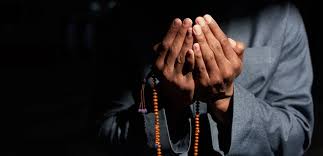This article covers the most common Hajj questions answered clearly to help you feel confident and ready for your pilgrimage. Whether it’s about the rituals, practical tips, or post-Hajj advice, you’ll find straightforward answers to guide you every step of the way.
Hajj Basics and Requirements
1. What is Hajj and Why is it Important in Islam?
One of the most common Hajj questions answered in every beginner’s guide is what Hajj truly means. Hajj is the fifth pillar of Islam and a mandatory act of worship for all financially and physically able Muslims.
It commemorates the actions of Prophet Ibrahim (AS) and his family and is a profound journey of faith, unity, and submission to Allah.
2. Who is Required to Perform Hajj?
Among the most common Hajj questions answered by scholars is who must perform Hajj. It is obligatory once in a lifetime for every adult Muslim who is mentally sane, physically capable, and financially able to make the journey without causing hardship to themselves or their dependents.
3. When is Hajj Performed Each Year?
Timing is another of the most common Hajj questions answered in every pre-Hajj guide. Hajj takes place annually during the Islamic month of Dhul-Hijjah, from the 8th to the 13th. These dates are fixed, and pilgrims must be present in Makkah during this specific time to complete the rituals.
4. How Long Does Hajj Take to Complete?
A practical concern among the most common Hajj questions answered by experienced pilgrims is how long the journey takes. Hajj typically spans five to six days, although travel time, pre-ritual preparation, and post-Hajj visits (like Medina) can extend the total trip to two or three weeks.
5. What Are the Different Types of Hajj (Tamattu’, Qiran, Ifrad)?
Understanding the types of Hajj is one of the most common Hajj questions answered by guides and teachers. There are three types:
Tamattu’ – Umrah followed by Hajj with a break in between (most recommended for international pilgrims).
Qiran – Performing Umrah and Hajj together without exiting Ihram.
Ifrad – Hajj alone without Umrah.
Each type has different rules, so it’s essential to choose based on your travel plans and ability.
Preparations Before Hajj: Most Common Hajj Questions Answered
6. What Should I Do to Prepare Spiritually and Mentally for Hajj?
One of the most common Hajj questions answered by scholars and experienced pilgrims is how to prepare spiritually and mentally for Hajj.
Preparing your heart with sincere intention (niyyah), seeking forgiveness, increasing prayers and Quran recitation, and learning the Hajj rituals in advance will help you gain the most benefit from this sacred journey.
7. What Vaccinations or Medical Requirements Are Needed for Hajj?
Health concerns rank high among the most common Hajj questions answered by healthcare authorities.
Pilgrims must obtain specific vaccinations like meningitis and COVID-19, and it’s important to consult your doctor for any additional health precautions. Carrying prescribed medications and maintaining personal hygiene are also vital for a safe Hajj.
8. What Documents and Visas Do I Need to Travel for Hajj?
Another frequently asked question in the list of most common Hajj questions answered concerns the paperwork. Pilgrims need a valid passport, a Hajj visa issued by Saudi authorities, and sometimes a travel authorization through an approved Hajj agency. Always check the latest travel requirements as they can change year to year.
9. What Items Should I Pack for Hajj?
Packing smartly is a top query among the most common Hajj questions answered. Essential items include Ihram clothes, comfortable footwear, a prayer mat, sunscreen, water bottle, and personal hygiene supplies.
Avoid overpacking and prioritize lightweight, easy-to-carry items to make your pilgrimage comfortable.
10. Can Women Go to Hajj Without a Mahram?
One of the sensitive but important issues among the most common Hajj questions answered is about women’s travel. According to current Saudi regulations, women under 45 years must travel with a mahram (male guardian) or in an organized group. It’s best to verify the latest rules before making travel plans.
Performing Hajj – Step-by-Step FAQs
11. What Are the Main Rituals of Hajj and In What Order Are They Done?
Understanding the sequence of rituals is one of the most common Hajj questions answered by many pilgrims.
The main steps include entering Ihram, performing Tawaf around the Kaaba, walking between Safa and Marwah (Sa’i), standing at Arafat, staying overnight at Muzdalifah, stoning the Jamarat in Mina, sacrificing an animal, and finally shaving or trimming hair to complete the rites.
12. What is Ihram and How Do I Enter It Properly?
One of the essential most common Hajj questions answered is about Ihram—the sacred state every pilgrim must enter before starting Hajj.
Ihram involves wearing special simple clothing (two white sheets for men and modest dress for women), making the intention, and reciting the Talbiyah prayer. It also comes with certain restrictions such as no cutting hair or nails and avoiding disputes.
13. What Do I Say and Do During Tawaf and Sa’i?
Among the most common Hajj questions answered is how to perform Tawaf and Sa’i correctly. Tawaf involves circling the Kaaba seven times while making prayers and supplications.
Sa’i requires walking seven times between the hills of Safa and Marwah, reflecting on Hajar’s search for water. Both rituals symbolize devotion and perseverance.
14. What Happens at Mina, Arafat, and Muzdalifah?
Many pilgrims ask this practical question in the list of most common Hajj questions answered. At Mina, pilgrims spend the night praying and preparing for the next day’s ritual. Arafat is the most critical day for supplication and repentance, where pilgrims stand from noon to sunset.
Muzdalifah is where pilgrims collect pebbles and spend the night under the open sky before stoning the Jamarat.
15. What is the Significance of Stoning the Jamarat?
Stoning the Jamarat is a symbolic act and a frequently asked topic among the most common Hajj questions answered.
It commemorates Prophet Ibrahim’s rejection of Satan’s temptations when he was commanded by Allah to sacrifice his son. Pilgrims throw pebbles at three pillars representing Satan, symbolizing the rejection of evil and reaffirmation of faith.
Practical Concerns During Hajj
16. Where Will I Stay During Hajj?
One of the most common Hajj questions answered by pilgrims is about accommodation. Most pilgrims stay in tents arranged by the Saudi government or in hotels near the holy sites. Booking early through approved Hajj agencies can help secure comfortable lodging close to the rituals.
17. How Can I Stay Safe and Healthy During Hajj?
Health and safety concerns top the list of most common Hajj questions answered. To stay safe, drink plenty of water, avoid overcrowded areas when possible, follow COVID-19 protocols, and listen to health officials’ advice. Taking care of your physical health ensures a more fulfilling spiritual experience.
18. What Should I Do if I Get Lost or Separated From My Group?
Getting separated is a worry often raised in the most common Hajj questions answered. It’s vital to have a meeting point planned in advance and keep emergency contact numbers handy. Saudi authorities also have help centers and lost-and-found services to assist pilgrims.
19. Are There Facilities for Elderly or Disabled Pilgrims?
Accessibility is an important concern among the most common Hajj questions answered. Special provisions, including wheelchairs, electric carts, and dedicated assistance areas, are available to ensure elderly or disabled pilgrims can perform Hajj comfortably and safely.
20. Can I Use a Mobile Phone During Hajj?
A frequently asked practical question in the most common Hajj questions answered list is about mobile phone use.
Yes, mobile phones can be used for communication, navigation, and emergency purposes. It’s advisable to keep devices charged and use them respectfully without disturbing others’ worship.
Post-Hajj Considerations
21. What Should I Do After Completing Hajj?
One of the most common Hajj questions answered by returning pilgrims is about the steps after completing Hajj.
It is recommended to continue reflecting on the spiritual lessons learned, maintain the good habits developed during the pilgrimage, and share your experiences to inspire others. Many also visit the Prophet’s Mosque in Madinah to pray and seek blessings before returning home.
Continue Your Journey of Understanding
Ready to deepen your knowledge beyond the Hajj rituals day by day? Explore these helpful guides tailored for every step of your pilgrimage:
Discover the rules of ihram for men and women and enter Hajj in a state of purity.
Learn how to perform Tawaf with confidence and focus.
Understand the sacred Sa’i between Safa and Marwah in a clear, step-by-step way.
Unsure what to do in Mina during Hajj? We’ve got you covered.
Reflect on what is the Day of Arafat and why it’s the heart of Hajj.
Prepare for the important Muzdalifah night rituals every pilgrim must know.
Follow our stoning the Jamarat guide to complete this symbolic act correctly.
Learn how to do animal sacrifice in Hajj with our complete how-to.
Get Tawaf al-Ifadah explained so you don’t miss this key ritual.
Don’t forget a thing—our Hajj packing list essentials will keep you organized.
Stay safe with expert advice on staying healthy during Hajj.
Wondering what to do after Hajj? Start your next chapter spiritually strong.
If you’re new to Islam, read our Hajj guide for new Muslims—made just for you.
Set meaningful spiritual goals for Hajj to get the most out of your journey.
Find clear answers to the most common Hajj questions answered by experts.
Dive deeper into each topic and walk your Hajj journey with clarity and peace of mind.





